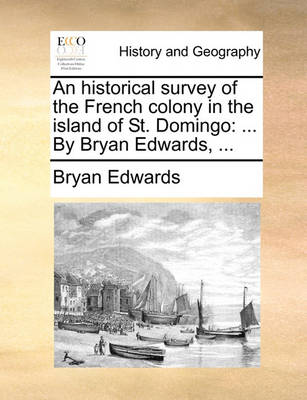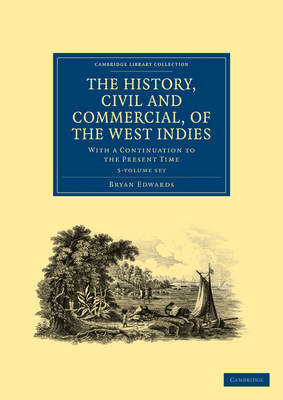Cambridge Library Collection - Slavery and Abolition
5 primary works • 7 total works
Volume 1
The History, Civil and Commercial, of the West Indies: Volume 1
by Bryan Edwards
Volume 2
The History, Civil and Commercial, of the West Indies: Volume 2
by Bryan Edwards
Volume 3
The History, Civil and Commercial, of the West Indies: Volume 3
by Bryan Edwards
Volume 4
The History, Civil and Commercial, of the West Indies: Volume 4
by Bryan Edwards
Volume 5
The History, Civil and Commercial, of the West Indies: Volume 5
by Bryan Edwards
An Historical Survey of the French Colony in the Island of St. Domingo
by Bryan Edwards


